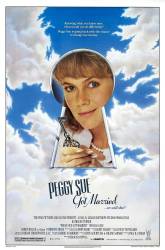
Question: I never understood the significance of the girl in the wheelchair at the reunion. Peggy Sue makes a big deal out of the girl but never in her "flashback" do we see this character.
Answer: You DO see Rosalie in the past. She hosts the party at which Charlie and his group sing. And Jim Carrey asks for the lights to be turned out. She walks, and begins to dance with her boyfriend.
No, that was Maddie's party. Peggy Sue's mom said so when she asked her why she wasn't ready for the party, when Charlie came to pick her up.
I finally see her, thanks! She's to the left of Peggy Sue and her girlfriends as they watch Charlie and the guys sing. Then she's the girl dancing on the counter at the coffee shop when Peggy Sue meets with Michael Fitzsimmons the first time. I always wondered about the Rosalie plot hole.
I think we DO see Rosalie before her accident-she is the girl dancing on the counter at the coffee shop when Peggy Sue goes for coffee and a donut and runs into Michael Fitzsimmons. Peggy Sue pauses and watches her for a moment.
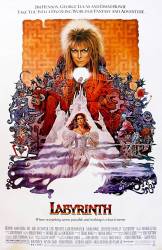
Question: This has always confused me. In the scene with the guards, which one always lies and the other always speaks the truth, Sarah asks which door leads to the castle gate then she figures out the riddle and chooses a door. However, the door she chooses, the supposedly correct choice, doesn't lead her to the entrance instead it's a trap. So did she choose the wrong door, or just the wrong direction for the hands to take her?
Answer: To add to that, the other door was supposed to lead her to certain death, and technically the oubliette wasn't exactly certain death.
Answer: She did choose the right door...if she had chosen up, she would have very likely come out at the castle, but she chose down.
If you pay attention down was also the correct answer. The Goblin king was angry when he discovered she was down there "She never should have made it this far" or something similar upon finding this out. Had she chosen up she would have ended up back at the beginning.
Answer: Sarah did indeed select the right door and did ask a sensible, albeit confusing question. The reason she fell into the oubliette (and the helping hands) is because as she walked through the door she said "I think I'm getting smarter. This is a piece of cake" - saying "piece of cake" within the Labyrinth to say how easy something is brings bad luck upon those who say it. Sarah said it to Jareth and he upped the stakes (reducing her time). Hoggle said it later (in Goblin City) and then they got surrounded by Goblins.
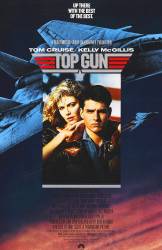
Question: This is probably a stupid question, but I know nothing at all about how these kind of aircrafts are flown. What exactly is the purpose of the guy sitting in the back of the plane? All they seem to do in the film is look in all directions for enemy aircrafts.
Answer: These aircraft are extremely complex; the presence of the backseater, variously known officially as the Weapon Systems Operator or Radar Intercept Officer, allows the pilot to focus on the immediate needs of flying the plane, as his backseater can take on many of the other tasks required. They serve as navigators, tacticians, bombardiers, weapons systems operators and, of course, as we see in the film, an extra set of eyes; they use their discretion in passing information to the pilot, ensuring that the pilot has only data that's important to the situation and isn't swamped by trivia. Without the distraction of having to fly the plane, they can often be better placed to coordinate between multiple planes, leading to situations where the backseater can be placed in command of the mission.
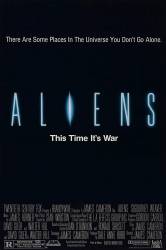
Question: I know that the studio chose James Cameron to direct due to the strength of his script, but why wasn't Ridley Scott offered the chance to direct? And was the studio considering a sequel before Cameron joined?
Answer: It really was all down to James Cameron having already written the script and proving himself capable of directing with 'The Terminator.' It was just a quicker, easier, and almost certainly cheaper decision to let him direct his own script rather than get someone else, even Ridley Scott. While the producers had wanted to make an 'Alien' sequel almost immediately, at the time the head of 20th Century Fox didn't want to pursue it fearing it would be seen as an obvious cash-in and flop. When a new executive at the studio came in a couple years later, the project was put back on track, and I believe Cameron was the first to be approached to write the script.
Chosen answer: The studio was considering a sequel before Cameron was involved, but regarding directing it, Ridley Scott told "The Hollywood" in a 2008 interview, "They didn't ask me! To this day I have no idea why. It hurt my feelings, really, because I thought we did quite a good job on the first one." The studio liked Cameron's script and at that time he had enough clout to be able to insist on directing it.
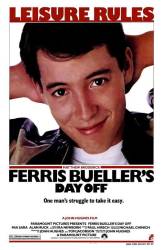
Question: When Sloane was told her grandmother was dead, did she know it was a hoax? And did Rooney figure it out?
Answer: Sloane knew it was a hoax. Ferris would not have done something like that without her knowing. Rooney pretty much had figured it out, but could never prove anything. Once he was discovered inside the Bueller house (illegally) by Ferris' sister, anything he did know he would have to keep to himself.
Sloane starts to put her jacket on the moment that she sees the school nurse walk into the classroom, suggesting that Sloane already knew she would be called out, and she smiles to her classmates.
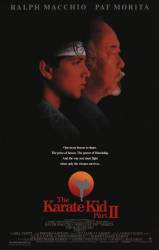
Question: When Chozen, while bullying Daniel, takes the latter's handheld drum (which Chozen mockingly called a "baby rattle") and calls the latter a baby, Kumiko, sticking up for Daniel, fiercely says a phrase in Japanese (or Ryukyuan) to Chozen. What exactly does Kumiko say, and what does it mean? (00:57:50)
Answer: "You are crazy."
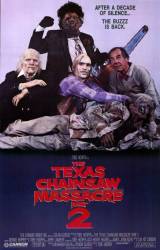
Question: At the beginning, Stretch asks the two punks in the car to hang up so that the call can end and the phone line can be clear. Why? Why can't she just hang up and end the call? This makes no sense.
Chosen answer: That's how telephones worked back then. It has to do with the lack of a disconnect signal being sent by the called party, which phone companies have now. Back then when someone called another person, they were paying for the call and thus it was felt that they're entitled not to be hung up on and the line would not be "free" for the person being called, even after they hung up. This also meant if someone was called and they picked up in one room, they could say "hold on I'm going to switch phones", hang up, go to another room and pick up the phone and the caller would still be there. It was also a great way to scam or annoy people by calling them and not hanging up. Some countries still maintain this method of operation, largely because some people have become used to it, although nowadays it's by choice, not by technical limitation, and the length of time the line is held open is significantly reduced.
Yeah that's actually true. in the 80s we used to call up talk radio shows from isolated, seldom-used phone booths and then leave the phone off the hook. No more calls for hours until they straightened it out with the phone company. we called it 'jock blocking'.
That's not true my brother would prank call KDKA in Pittsburgh constantly they had no trouble hanging up. If people called our house there was no trouble hanging up.
That's exactly how it worked if the line didn't have a disconnect signal.
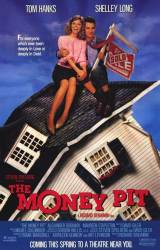
Question: Walter is discussing changing the name of Cheap Girls to Meryl Streep with a band member. When they say 'Meryl Streep,' their mouths are not in sync with the words. Do you know what the original name change was supposed to be, and why was it changed?
Answer: It was Jane Fonda.
Answer: I have watched this several times. It looks to me like he is saying Meryl Streep but the audio is just out of sync with the man's lips. Plus when Hanks says it, it matches Meryl Streep on his lips.
Answer: It looks like Meryl Streep the first time he says it but not the second.
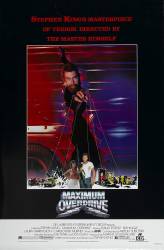
Question: One of the early posters of this film shows a bearded guy (who is not in the film) coming through a wall crack and holding puppet strings with one hand. Who is this guy supposed to be and what does he represent?
Chosen answer: He does bear a striking resemblance to Stephen King. King was both the writer and director of this movie, and as such, was certainly the guy in charge of all the character's fates and pulling all the strings.
Answer: It is Stephen King.
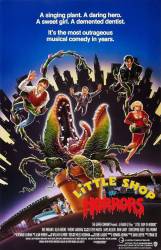
Question: Near the end of the song "I am a dentist", is Orin saying "and a success" or "and I say sit"?
Answer: He says "and a success". He's singing about his mother telling him he'd become a successful dentist.
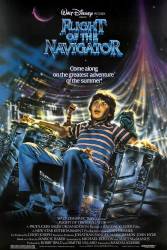
Question: Paul Ruebens does the voice of Max but why in the credits does it say that the voice of Max was done by Paul Mall?
Answer: According to IMDB, Paul Mall is just another one of his names people know him by.
Answer: It was Paul Reubens' idea to use a pseudonym, so as to keep the voice of Max a mystery and to surprise any fans of his.
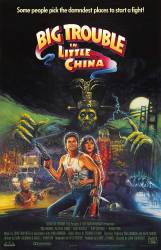
Question: When Lightning is crushed by the statue at the end of the movie, he sends out dozens of bolts of energy before he dies. The final wisp of electricity forms a Chinese character. Does anyone know what it means?
Answer: It's the symbol for "carpenter" after the director John Carpenter.
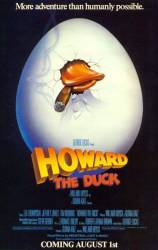
Question: Why is the secretary was so rude to Howard when he tried to find the job?
Answer: As she said to Howard, she believed that he was using his "outlandish" appearance to be unable to find work and collect money through unemployment. She's probably dealt with people who did the same thing and was eventually sick of it.
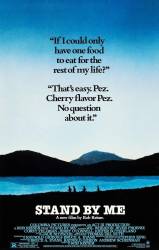
Question: In the train dodging scene, why didn't the loco crew brake at all? They definitely saw the boys in front. I know that trains have very long stopping distances compared to road vehicles, but still. And why didn't the boys try to signal the driver to stop? I get it that they panicked, but still wouldn't that be the first thing coming to one's mind in such a situation?
Answer: No, it wasn't that big of a train. He didn't even attempt to get off the throttle. That's all it would have taken for the boys to make it fairly easy. It was a straight-away track, no chance of it derailing by hitting the brakes. Like the man said above, if trains derailed that easily, we wouldn't be using them.
Answer: To add to the other fine answers, and as mentioned, any attempt to make a sudden stop could have resulted in derailment. The conductor knew the train was about to go over an elevated track, and if it derailed, it would have plunged into the deep ravine, killing the boys anyway, as well as those on aboard. The best he could do was blow the whistle, gradually slow the train, and hope the boys survived.
Can't agree with the arguments about derailment. If trains derailed so easily, they would derail all the time. The train had only 4 or 5 cars. It would not have needed miles to stop. Simply reducing the throttle would have resulted in significant slowing. Plus, they did not stop to determine if anyone was hurt. That is criminal behavior.
Answer: Throwing on brakes that heavily gives the train a chance of derailing and the train still wouldn't stop in time.
Answer: A train that size would have needed miles to stop, and rapid braking could have caused derailment. The engineer was blowing his whistle so he saw the boys; there was no need for them to signal. The engineer and the boys knew their only chance was to get off the bridge.
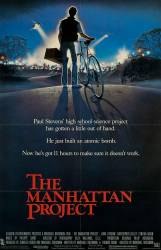
Question: Would the interference from the plutonium keep the RC car from working?
Answer: Radiation wouldn't necessarily affect a remote control car. It would contaminate it, but beyond that the car would continue to work.
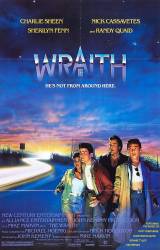
Question: What are those devices we see disappear from the wraith's arm and after the second and third race supposed to be?
Chosen answer: I believe they are markers to show how many people are left to take revenge on for his death.
The problem with that answer is that the Wraith had to kill five people (Oggie, Minty, Skank, Gutterboy and Packard) and he only had four of those metal braces. If he had one for each gang member he wanted revenge on, he would have had five. I think he was only given four chances to crash his car and reassemble, and once they were gone, that was it. That's why he killed Skank and Gutterboy at the same time.
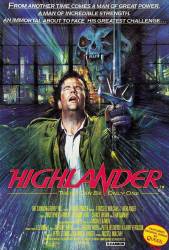
Question: How is the "no fighting on holy ground" rule enforced? I really can't see a guy like the Kurgan, who seems to have no sense of honor to speak of, following the rule willfully, unless there was some severe punishment for breaking the rule.
Answer: What the punishment is isn't shown in this movie, but since even the Kurgan follows it, it must be high. In Highlander 3 we see that fighting on holy ground at least destroys the weapons they are fighting with (although only Macleod's for some reason), it's possible the ultimate penalty is given when an immortal kills another immortal on holy ground. A good guess is the penalty is death.
Answer: The "No Fighting on Holy Ground" is considered a sacred rule. Like being quiet in church, a funeral or any religious service. If any immortal would break this rule he was not be honorable and not subject to any of the other rules. Like fighting one on one and using hired thugs to capture an immortal holding him down to take his head.
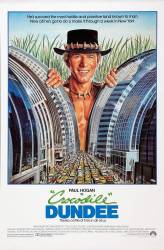
Question: During the scene with "live it up" playing in the background, what was it and where were they? With Simone being there it is obviously full of hookers but was it a party, and if so, whose and why? The whole scene just feels weird.
Answer: It is a party thrown by one of Sue's socialite friends, presumably the husky-voiced woman whose crotch Mick grabs. The party is not "full of hookers", Simone is there as the hired escort of the old man she is dancing with, who Mick naively believes to be her father. We can assume the old man paid for Simone to be his date to the party and likely for some time alone with her afterwards. There is no stated reason for why the party is being thrown.
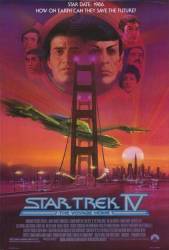
Question: Kirk and crew deliberately disclose crucial technological secrets, extend the life of a random stranger, deliver future technology to a primitive military power, abduct a cetacean biologist, and actually contribute to the extinction of a species during their brief stay in 20th Century San Francisco. Specifically: Scotty reveals the secret of Transparent Aluminum 150 years too early; McCoy arbitrarily uses 23rd Century medicine to cure a seriously ill 20th Century woman; and Kirk chooses to remove Gillian from the 20th Century. Perhaps most importantly, Chekov leaves behind a Starfleet Communicator and a Type 2 Phaser in the hands of the U.S. Navy (who would undoubtedly dissect the devices and try to exploit the technology a couple of centuries too soon). Beyond all that, Kirk and crew abduct two breeding humpback whales, one of which is pregnant, and that certainly contributes to humpback extinction in the 21st Century. Given what we think we know about disrupting linear time continuity (many instances are cited in Star Trek canon), how did Kirk and crew return to anything even resembling their own timeline after such blatant and deliberate interference in Earth history?
Chosen answer: This question has been answered a number of times by various individuals, all saying pretty much the same thing. The answers have been most satisfactory given the question revolves around a fictitious situation and the answer (s) need to be accepted as complete for this purpose. Any dispute or non-acceptance should be addressed in a Star Trek forum. Any ignoring of the Prime Directive was done to save the future of Earth, as the probe would have wiped out all life on Earth. Essentially, nothing that was done in the past resulted in major changes that would make Earth 300 years later appear any different, and no major futuristic technologies were revealed. The major one, Chekov's communicator and phaser being left behind did not result in anybody learning secrets. In the film, the phaser didn't function because of the radiation. It's presumed then the radiation permanently damaged the equipment so it appeared to be nothing but a toy or prop. However, in the novel "The Eugenics Wars: The Rise and Fall of Khan Noonien Singh", Roberta Lincoln was sent by Gary Seven to recover the items from Area 51 before any secrets were learned (and as stated before, additional corrections to Earth's timeline could have been done that aren't addressed in the film.) The subsequent loss of a suspicious "ruskie" would have hardly affected the era that was already in the midst of the Cold War. McCoy even questions that giving Dr. Nichols the formula for transparent aluminum could alter history to which Scotty replies what if Dr. Nichols is the one who invents it, to which McCoy agrees (in a later novel it is reveled that Scotty already knew Dr. Nichols invented transparent aluminum, so history was not changed.) The miraculous recovery of the old lady (growing a new kidney) was done by a pill so that any examination of her would not reveal the futuristic method involved. She would be a bewilderment to the medical community at best, and most likely misdiagnosis would be to blame. And just because she got a new kidney does not mean her life would have been extended, she could have died some other way in both timelines. And as stated before, Gillian simply wasn't vital to Earth's history. She could have contributed nothing of importance to society and died alone and childless. And a missing pair of breeding Humpbacks would hardly affect the extinction of their species, however in the future, they are already extinct, so little changes would occur. As for any questions about people seeing the Klingon ship in the past, who would believe them? People have long been claiming to see spaceships and aliens to little or no avail, so why would anyone believe a handful of people who said they saw aliens in a spaceship steal 2 whales? However, as with many time travel situations in films and novels, it's possible the events of the 23rd century as they appear in the beginning of the film are a result of Kirk and company's actions in the 20th century since the events already occurred even though Kirk and company had not yet done it themselves (this is where a discussion forum on the film would be advised, or a discussion forum on the theories of time travel).
Possibly the most convoluted and poorly-reasoned series of answers I've seen on this site. So far.
I think they're pretty logical actually.
I think your opinion would be in the minority. There is nothing exceptionally convoluted, nor poorly reasoned in the response.
Answer: They were extraordinarily lucky. The crew quite often defies all odds and encounters literal miracles. For a period of time this even happened on a roughly weekly basis.
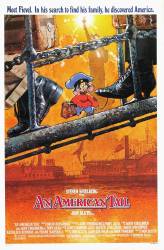
Chosen answer: In the original script, Rosalie (the girl in the wheelchair) injures herself in an accident. Peggy Sue tries to change things that happen in the future, including Rosalie's accident.
ChiChi